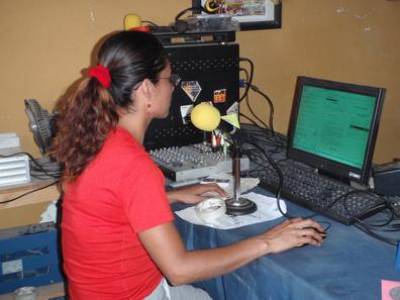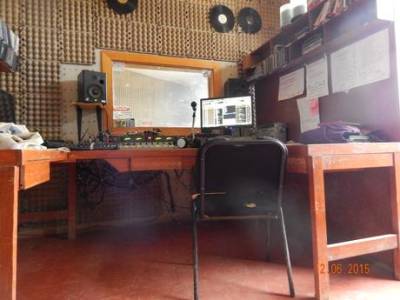Dr. Elena Nava Morales. Professor and Researcher.
Instituto de Investigaciones Sociales. UNAM, Mexico.
Project status: Ongoing
Fieldsite: Oaxaca, Mexico

Project outline:
The current research will generate original knowledge about how socio-digital networks are configured in indigenous contexts. The research aims at knowing the networks' uses, practices and relationships and at observing within them the emergence of socio-political action and cohesion processes. The research will be done in the state of Oaxaca, Mexico, based on ethnography, as a theoretical-methodological tool.
In order to approach local dynamics and to carry out an ethnography of the socio-digital networks in the indigenous area I will start doing research on some organizations and agents in the state of Oaxaca. I will also rely on the anthropological concept of network. This concept has a history, since Radcliffe-Brown's classic works and others by authors such as Mayer (1966) or Barnes (1969) of the Manchester school. In a more sociological vein, it will be important to take into consideration what has been called "social movement networks" (Alvarez et al., 1998). This notion was effectively used by Leyva (2005) who, in his work with the neo-Zapatistas' networks, explains how the network metaphor "gives us the possibility to imagine in a more vivid way the entanglements at many levels of the actors of the movements with the natural-environmental, political-institutional and cultural-discursive fields in which they are anchored "(Alvarez et al., 1998: 15-16 apud Leyva 2005).

My observation of the socio-digital networks in Oaxaca's indigenous area will be based on fieldwork, direct observation, in-depth interviews and life histories. I have a few hypothesis I want to consider. The first is that the rise of socio-digital networks and access to the Internet has generated intense socio-political cohesion among indigenous peoples in various levels, from global to local ones. However, I think that socio-political cohesion occurs more intensely with subjects who share the same local and / or regional areas, even if they do not coexist in the same space. The second is that the relationships between the agents, organizations or communities that support socio-digital networks can be characterized in different ways. They may have different durations and be activated or deactivated according to political, social or economic circumstances, facilitating different processes of action. The socio-digital networks among indigenous peoples are strongly anchored to community foundations. And finally, the main subjects in charge of managing these socio-digital networks are the indigenous communicators / activists. They are part of an educated indigenous elite who, compared to the bulk of the population of their communities, have had access to varied educational and economic resources and have been exposed to exchanges that go beyond the local level.
Bibliography
-Álvarez, S., Dagnino E. y Escobar A. (eds.). (1998). Cultures of Politics. Politics of Cultures. Re-visioning Latin American Social Movements. Boulder Colorado: West View Press.
-Barnes, J. A. (1987). Redes sociais e processo político. In: Feldman-Bianco, Bela (Org.). A antropologia das sociedades contemporâneas. São Paulo: Global
-Leyva, X. 2005. Indigenismo, indianismo y "ciudadanía étnica" de cara a las redes neo-zapatistas. En: Pablo Palacios Dávalos (comp.) Pueblos indígenas, estado y democracia. Quito: CLACSO.
-Mayer, A. (1987). A importância dos "quase-grupos" no estudo das sociedades complexas. In: Feldman-Bianco, Bela (Org.). A antropologia das sociedades contemporâneas. São Paulo: Global
 Close
Close

